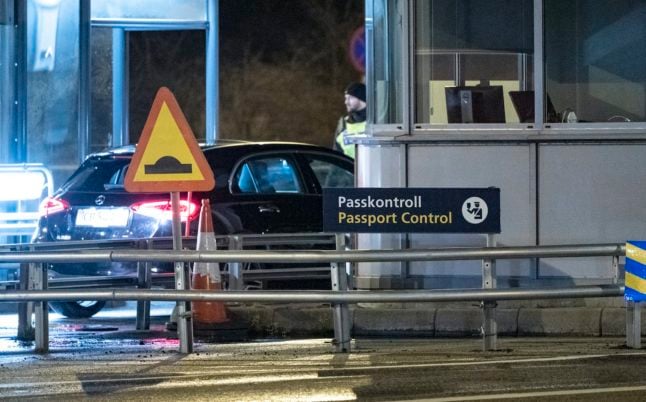Jin-yu Lu spent two years studying at Stockholm's Karolinska Institute and four years working at Swedish companies in the medical sector before her work permit renewal was rejected and she was forced to leave the country.
She got in touch with The Local from Taiwan, where she is currently working out the next steps in her career.
“Sweden is globally recognized for its efforts in technology innovation and humanitarian services. This spirit motivated me to come to Stockholm in 2013,” she explains.
After her two-year KI Master's in Bio-entrepreneurship, Lu worked first as a project coordinator for pharmaceutical development in clinical trials, before joining a medical technology company in 2018, working on quality assurance for drugs and medical devices for Parkinson's disease.
“The network and relationships I have built in Sweden during the past six years helped me grow up to become who I am today,” she says, also pointing to the investment made in her by the medical technology company which funded Lu's online course online course in biomanufacturing for medicines at Massachusetts Institute of Technology MIT.
NEW ARTICLE ON THE LOCAL:
Lu first became aware of the complexity in Sweden's work permit legislation in 2015, when a friend from her Master's programme received permit rejections from the Migration Agency and the Migration Court due to an administrative error.
And in October 2018, her own work permit renewal was rejected.
There were two reasons, including one which has affected many other non-EU workers: the advert for her job was not posted on the website of the Swedish Public Employment Agency before the decision was made to hire her in 2018.
Once made aware that this would be a problem, her employer posted the advert for the required two weeks while Lu was still in her probation period, and said that after this posting she remained the best qualified candidate.
The second factor in the rejection was that at the time she began working at the second company, she did not have a valid work permit since her application was still being processed.
The biomedicine professional has now returned to her home country, from where she is in the process of reapplying for a work permit. The new application was submitted in mid-October.
She says she was “surprised, confused and disappointed” by the rejection. “My boyfriend and cat are living in our apartment in Stockholm. I feel sad to be away from them because of this migration issue,” she says.
Her company supported her throughout the long process of appeals from 2018 to 2019, helping her understand the decision letters (written in Swedish only), and providing her with help from two lawyers.
“I believe they tried the best they could to keep me [in Sweden],” she says.
Her current plan is to return to work in Sweden if possible, but her experience demonstrates how the bureaucracy of the Swedish system can send skilled professionals to other countries, and she says she is open to other opportunities outside Sweden.
After leaving Sweden, Lu took a course in clinical vaccine development at the University of Oxford in the UK, and at the start of November she was admitted to another course at the prestigious institution, this time in medical statistics for clinical trials, which will begin in Oxford from early December.
“This leads to alternative career plans, while I am still waiting abroad for the Swedish Migration Agency's decision,” she notes.
While she says she would be happy to return to Sweden if given the opportunity, she is stunned that she has been admitted to the university after being forced to stop working in Sweden.
“Looking from a long-term perspective, I feel this experience is a critical turning point. When one door closes, another opens,” she comments.
“Both in Stockholm and Oxford, I have been inspired by many people from various countries who are also working far away from their hometowns to improve human health. Politics for immigration may be complicated, but opportunities for medical innovation must not be compromised.”
Thank you for reading this article. Which issue that affects foreigners in Sweden should The Local write about next? If you have feedback, questions or ideas, please get in touch.



 Please whitelist us to continue reading.
Please whitelist us to continue reading.
Hello,
Why you are insisting that is something is wrong with Migrationsverket. It is not to blame Migrationsverket, you should blame employer. In most cases employer and employee agree on employment before announce. Both employee and employer in such cases are trying to bypass the law. There was a reason for law, having announced employment case in the Swedish Public Employment Agency. It is because people make sure all employment announcements are accessible to them and they do not miss them. Employer can announce the employment to any other websites, etc.